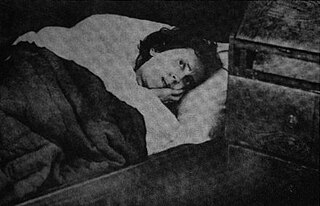This page is based on this
Wikipedia article Text is available under the
CC BY-SA 4.0 license; additional terms may apply.
Images, videos and audio are available under their respective licenses.
In several cultures, a middle name is a portion of a personal name that is written between the person's given name and their surname. A person may be given a middle name regardless of whether it's necessary to distinguish them from other people with the same given name and surname. In cultures where a given name is expected to precede the surname, additional names are likely to be placed after the given name and before the surname, and thus called middle names. In English-speaking American culture, that term is often applied to names occupying that position even if the bearer would insist that that name is being mistakenly called a "middle name", and is actually :

Ulf Gunnar Ekberg, also known as Buddha, is a Swedish singer-songwriter, musician, businessman and television and film producer, best known as a founding member of the pop group Ace of Base, along with siblings Jonas Berggren, Linn Berggren and Jenny Berggren.
Are is the second-person singular and plural forms of the verb "to be", the copula of the English language.
The Göta Artillery Regiment, designation A 2, was a Swedish Army artillery regiment that traced its origins back to the 17th century. It was disbanded in 1962. The regiment's soldiers were originally recruited from Götaland, and it was also garrisoned there.
In Finland, a person must have a surname and can have up to three given names. Surnames are usually inherited patrilineally, while given names are usually chosen by a person's parents. Finnish names come from a variety of dissimilar traditions that were consolidated only in the early 20th century. The first national act on names came into force in 1921, and it made surnames mandatory. Between 1930 and 1985, the Western Finnish tradition whereby a married woman took her husband's surname was mandatory. Previously in Eastern Finland, this was not necessarily the case.
Heritable family names were generally adopted rather late within Scandinavia. Nobility were the first to take names that would be passed on from one generation to the next. Later, clergy, artisans and merchants in cities took heritable names. Family names (surnames) were still used together with primary patronyms, which were used by all social classes. This meant that most families until modern times did not have surnames. Scandinavian patronyms were generally derived from the father's given name with the addition of a suffix meaning 'son' or 'daughter' or by occupation like Møller - naming tradition remained commonly used throughout the Scandinavian countries during the time of surname formation.
Forms of the patronymic suffixes include: -son, -sen, -fen, -søn, -ler, -zen, -zon/zoon, and -ssøn .
Okej was a monthly music magazine published in Sweden between 1980 and 2010.

Band of Sisters: American Women at War in Iraq is a 2007 book by Kirsten Holmstedt about the Iraq War and women in the military with a foreword by Tammy Duckworth. Band of Sisters presents twelve stories of American women on the frontlines including America's first female pilot to be shot down and survive, the U.S. military's first black female combat pilot, a 21-year-old turret gunner defending a convoy, two military policewomen in a firefight, and a nurse struggling to save lives.
In Sweden, a person must have a surname and one or more given names. Two given names are common. Surnames are inherited from the parents, in the order of "same as elder sibling, if any; specified by parents; or mother's last name," while given names must be chosen by the parents at birth. The calling name by which the person is normally identified in conversation, is in Scandinavian countries one of the given names, not necessarily the first. In contexts where the full name is spelled out, the calling name is often indicated by an asterisk, by capital letters, or underlines or italics. For example, Märta Birgit* Nilsson is known as Birgit Nilsson, while Agnetha* Åse Fältskog is known as Agnetha Fältskog.
Events from the year 1901 in Sweden

Karolina Olsson, also known as "Soverskan på Oknö", was a Swedish woman who purportedly remained in hibernation between 1876 and 1908.
Oknö is an island outside Mönsterås, Sweden, and the name of the only town located on the island.
Meeting in the Night is a 1946 Swedish film directed by Hasse Ekman. The film stars Ekman, Eva Dahlbeck and Ulf Palme.

Events from the year 1807 in Sweden

Events from the year 1759 in Sweden

A plant epithet is a name used to label a person or group, by association with some perceived quality of a plant. Vegetable epithets may be pejorative, such as turnip readily giving offence, or positive, such as the rose or other flowers implying beauty. Tree and flower forenames such as Hazel, Holly, Jasmine and Rose are commonly given to girls. Tree surnames such as Oakes (Oak) and Nash (Ash) are toponymic, given to a person in the Middle Ages who lived in a place near a conspicuous tree. A few plant surnames such as Pease and Onions are metonymic, for sellers of peas and onions respectively. Finally, plant surnames are sometimes emblematic, as in the name Rose, used as a family emblem.





